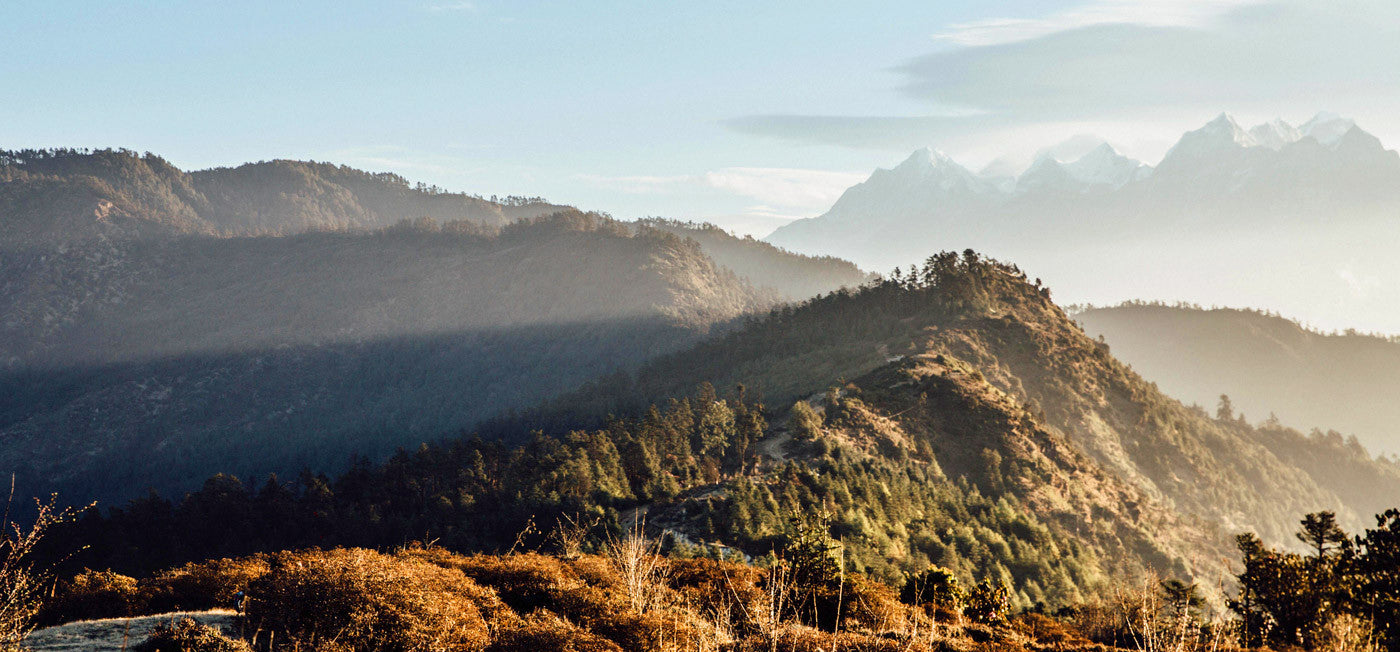
Books for the Great Outdoors
Travellers' accounts of the outdoors have undergone a significant transformation. In the nineteenth and early twentieth centuries, the written experience was often centred around heroic adventurism; the exploration and conquest of new territories, documenting the unknown, and asserting dominance over foreign lands. In recent years, there’s been a shift, with an increased awareness of the benefits that being in nature has on our mental health. Here, we look at several of the best books about being in the outdoors — and the effect nature has on a variety of mental health issues, from the pressures of motherhood to PTSD for military veterans.

Horatio Clare, The Light in the Dark: A winter journal
This slim, beautifully written book explores Clare’s battle with ‘seasonal sadness’ through a Yorkshire winter. The book blends personal memoir with nature writing, as Clare roams the hills around his local village of Hebden Bridge. In spare, lovely words, he describes how the natural world offers solace and understanding during dark times. For a deeper dive into the world of mental health, his next book, Your Journey, Your Way: How to Make the Mental Health System Work For You, is published this August by Penguin.
Roger Deakin, Waterlog: A Swimmer's Journey Through Britain
One of the all time great pieces of nature writing, Deakin’s elegant meditation on swimming Britain’s rivers, lakes and seas captures the therapeutic and rejuvenating benefits of wild swimming. His prose is lyrical and funny, with the core message that ‘natural water has always held the magical power to cure…. I can dive in with a long face and what feels like a terminal case of depression and come out a whistling idiot.’

Anna Fleming, Time on Rock: A Climber’s Route into the Mountains
This evocative memoir chronicles Fleming’s personal growth through rock climbing. As she scales cliffs and crags, Fleming reflects on the physical and mental challenges of the sport, as well as its meditative and empowering aspects. The book considers the deep connection between climbers and the natural landscapes they navigate, highlighting the interplay between human endurance and the timelessness of stone. Through her climbing journey, Fleming explores themes of resilience and self-discovery.
Frédéric Gros, A Philosophy of Walking
In this book, Gros explores the act of walking, delving into its historical and philosophical significance. He highlights how great thinkers like Nietzsche, Thoreau, and Rousseau used walking as a means of contemplation and liberation. He examines the different types of walking, from leisurely strolls to pilgrimages. Through walking, Gros suggests, we can find simplicity, freedom, and a deeper connection to ourselves and the world around us.
Helen Mort, A Line Above the Sky: On Mountains and Motherhood
Mort writes about motherhood, climbing, and the complexities of female identity. Interweaving her experiences as a climber with the life of Alison Hargreaves, a pioneering female mountaineer, Mort delves into the parallels and contrasts between their lives. The narrative examines the intersection of adventure and responsibility, particularly focusing on the challenges and judgments faced by women who pursue high-risk passions while navigating societal expectations.

Cheryl Strayed, Wild: From Lost to Found on the Pacific Crest Trail
Strayed’s sensational book — also adapted into a blockbuster movie starring Reese Witherspoon — follows her solo 1,100-mile walk of America’s west coast. She takes the decision to set off after her world falls apart when her marriage ends and her mother dies of cancer. It’s a brutally candid narrative, confronting physical challenges, inner demons and Strayed’s own vulnerabilities. In a true redemption arc, she finds strength in the wilderness, and gains a new understanding of her place in the world.
Raynor Winn, The Salt Path
The Salt Path is a genre-defining book that’s inspired tens of others. She chronicles a journey taken with her husband, Moth, along the South West Coast Path. They’re facing profound upheaval: he’s been diagnosed with a terminal rare neurological disease; they’ve lost their home. Their 630-mile trek along the South West Coast Path is a way to reclaim their lives and confront their fears. Along the way, they encounter the healing power of the natural world, finding unexpected strength in the rugged coastal landscape.



